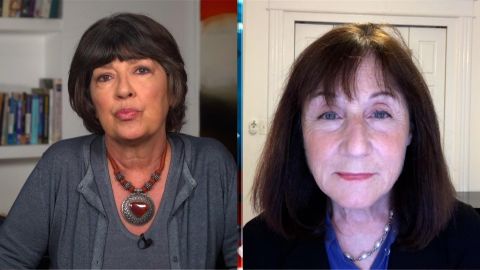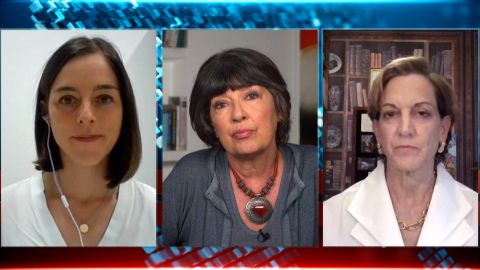Read Transcript EXPAND
ANNA SAUERBREY, “THE NEW YORK TIMES”: Well, in one way, Olaf Scholz is an emulation of Angela Merkel. He’s, like her, firm and humble in his demeanor. He’s got her cheeky wit. And he makes it a point, for example, to carry around his old leather briefcase that he’s already had as a young man. He’s not a scientist. He’s a lawyer, but he does have her love for figures and detail too. But, politically, there are strong differences. He’s a Social Democrat through and through. He is a proponent of a minimum wage, of a minimum global tax. He is for a strong public investment and for a strong social safety net. And within Germany social democracy, he is on the rightish side. He was a supporter of the very controversial labor market reforms in the early 2000s. But at the same time, he’s also adopted recently a few projects of the center-left. So I do think it will make a political difference.
CHRISTIANE AMANPOUR: Anne Applebaum, listen to that, watching it also from Europe, not necessarily inside Germany, what do you think this results and a possible coalition ahead means for Europe and beyond and for, as I said, the transatlantic partnership and beyond?
ANNE APPLEBAUM, “THE ATLANTIC”: So, the real question for everybody else, for non-Germans who live in Europe or even in the U.S., is, what is this going to mean for German foreign policy? And, unfortunately, that was not a major theme of this election. It wasn’t — like so many elections in so many of our countries now around the world, foreign policy was a really a secondary issue. And neither Scholz, nor his main competitor, the leader of the Christian Democrats, have been very forthright about — they haven’t sounded very different from Merkel. They haven’t said anything that would indicate that they’re willing to push Germany in a different direction. The issues that are really important are, is Germany willing to take on a bigger defense and security role, or is it willing to let allow the E.U. to do that? Is Germany willing to push back more dramatically against Russia and China, who are attempting to — who are beginning to dictate the terms of engagement and, in some cases, the terms of trade with Europe and the U.S.? The one party in the election that has really sounded very different on these issues was actually the Green Party. And the good news is, it looks like the Green Party will be in the next coalition. It seems like it would be difficult to make a coalition without them. And the Greens have been actually a lot more critical of the rising — rise in autocracy around the world. They have been louder about the need for Europe to push back against it, the need for Europe to take on a bigger security and defense role.
About This Episode EXPAND
Dr. Rochelle Walensky; Anna Sauerbrey; Anne Applebaum; Jane Mayer
LEARN MORE


